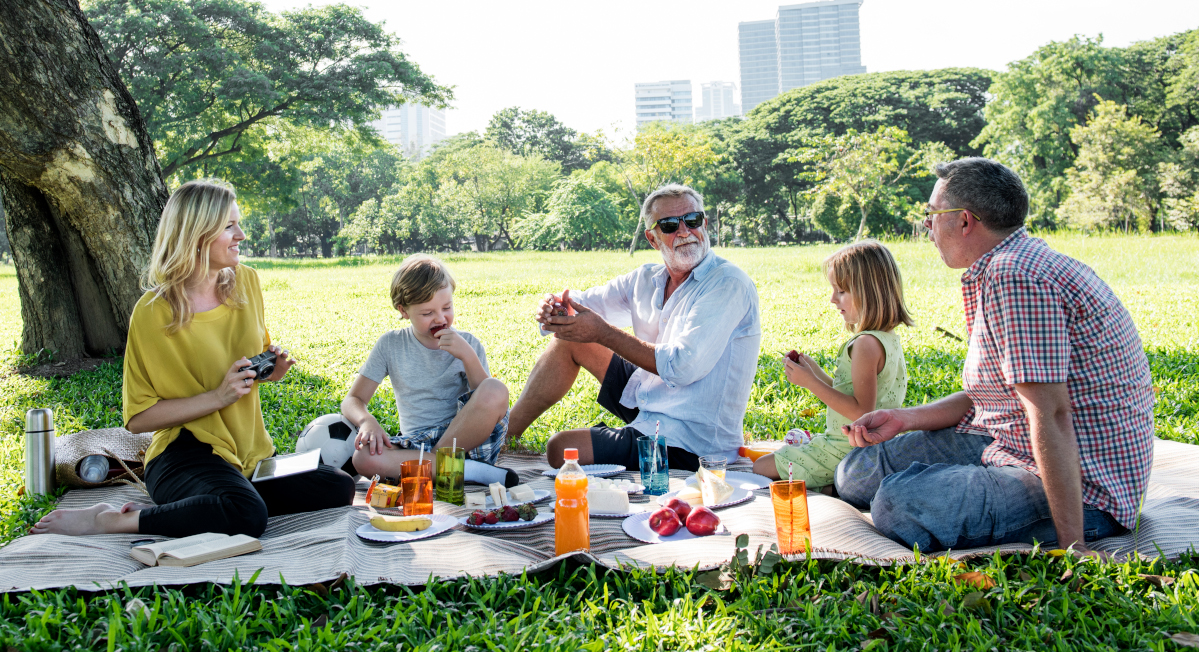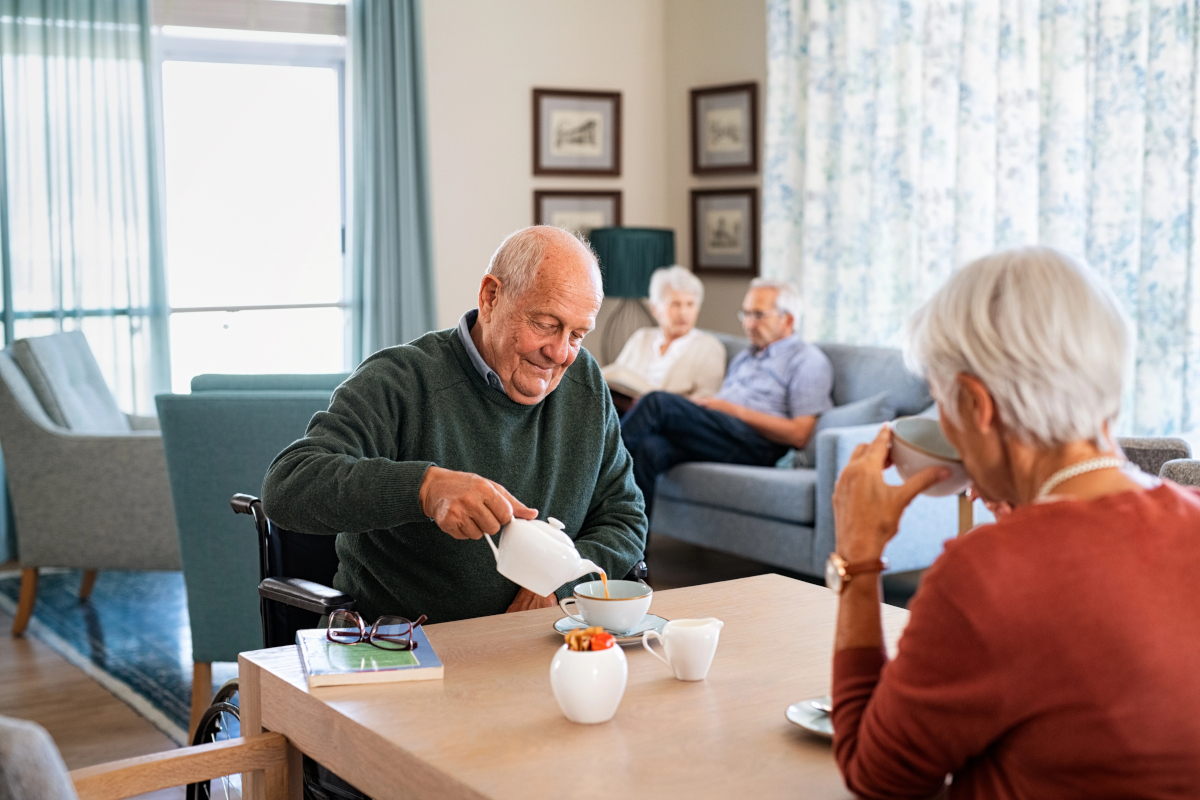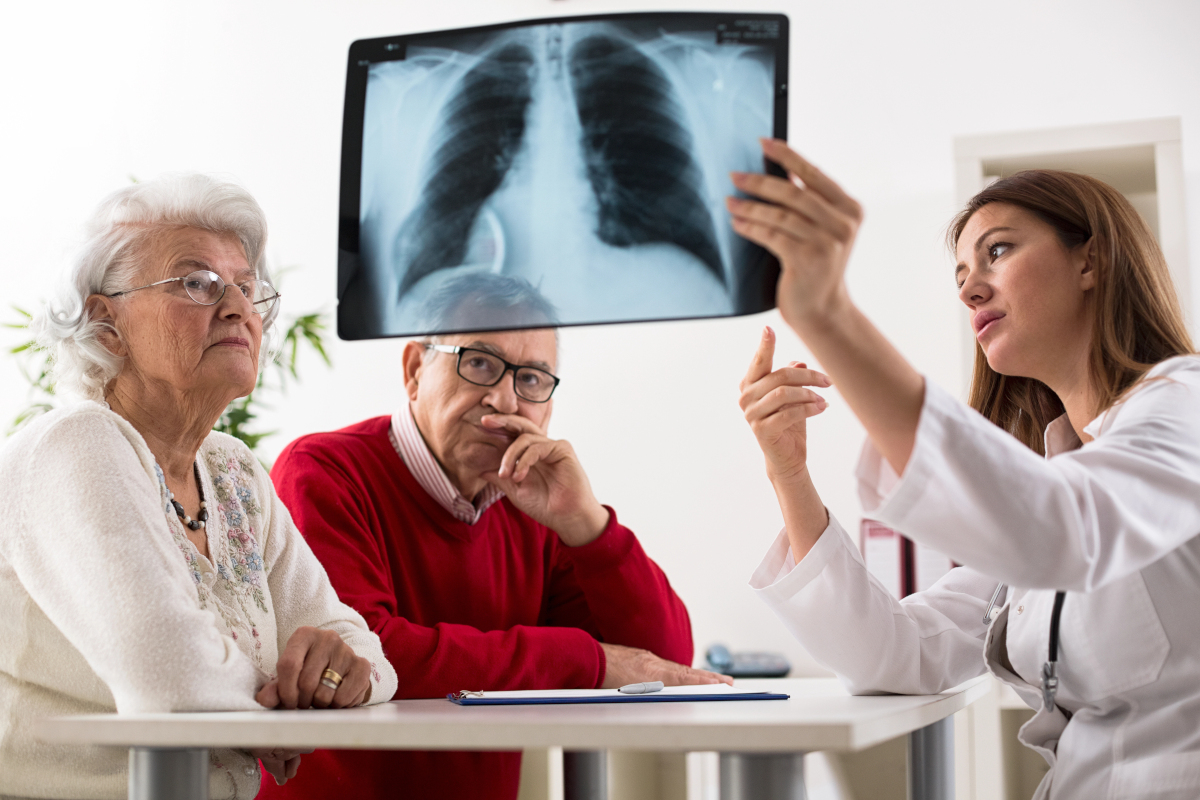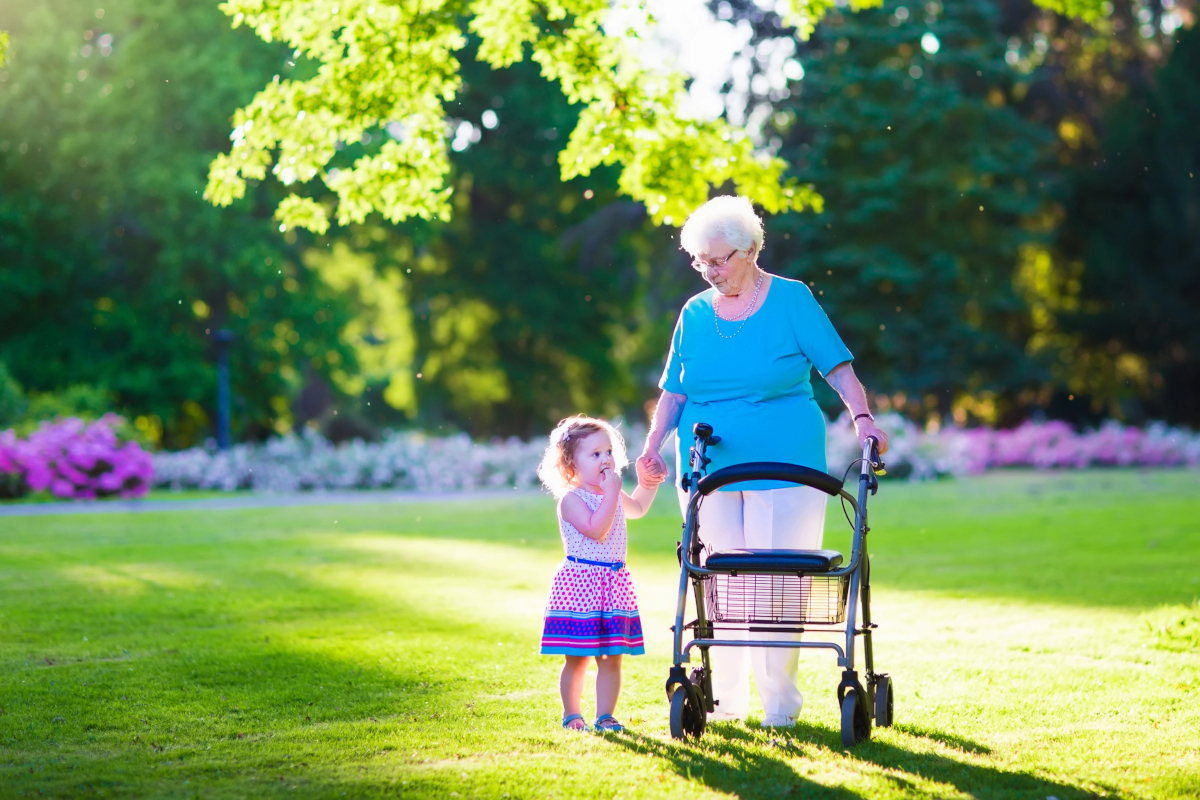Summer is a great time to go outside. Many senior citizens like to golf, garden, and enjoy other outdoor activities during the season. Even those who have limited mobility can bask in the sun and take in the scenery. It can have a wonderful effect on mental and physical health.
While it’s great to go outside and get some sun, it’s also important to understand the risks of dehydration in seniors.
Dehydration occurs when the body is putting out more water than it is taking in. The human body requires water to survive. It is used to regulate temperature, carry nutrients to cells, eliminate waste, and cushion joints. Even mild dehydration can become a problem.
Seniors are particularly vulnerable to dehydration due to changes in sodium balance that happens as we age. They may also have a lack of thirst sensation, which means they may not realize that they need to drink more water until they are experiencing symptoms.
Whether you are a senior citizen or someone who spends time around older adults, you should know the signs of dehydration. The most common symptoms include:
- Nausea
- Headache
- Dry mouth
- Confusion
- Disorientation
- Less Urination
- Fainting
- Loose skin
A person may be dehydrated if their skin doesn’t return to normal after being pinched. If you recognize any of these symptoms, have the person drink water or something with electrolytes if it is available. Seek medical attention immediately.
The best way to deal with dehydration is to avoid it altogether. At Pinnacle Peak Assisted Living Home, we are very careful to monitor the health and wellness of our residents. We want to spread awareness so that you and your loved ones can enjoy the summertime without the risk of dehydration.
What can you do to prevent a medical emergency related to dehydration?
Monitor Time Spent Outdoors on Warm Days
Staying indoors with air conditioning is the best way to keep cool. However, seniors who stay inside all the time won’t reap the benefits of sunshine and fresh air.
Closely monitor time spent outdoors on warm days. Avoid direct sunlight and limit outside time on days that are over 80 degrees Fahrenheit. Wearing light-colored clothing that’s loose-fitting can also help keep seniors cool.
- If a senior starts to feel too warm on a hot day, try the following:
- Take a lukewarm shower or bath to control body temperature
- Place cool, wet washcloths on wrists, neck, ankles, or armpits
- Avoid exercising and focus on calming the body
- Spritz with water from a mister or spray bottle
Encourage Seniors to Drink More Water
The amount of water needed daily will vary from one person to the next. The National Council on Aging recommends taking in about a third of your body weight in fluids. Someone who weighs around 150 pounds should drink 50 ounces of water daily.
You should consult your doctor for a more accurate recommendation based on your health status. Some factors, like medications or health conditions, could change the amount of water a senior needs to drink to stay well-hydrated.
Drink Water Throughout the Day and After Exercise
More active seniors may want to go outside and do the things they love. That could be gardening, golfing, fishing, walking, or playing sports. This is a great way to stay fit, as long as it’s done with the risk of dehydration in mind.
Make sure seniors drink water throughout the day and after physical activity. Remember that the need for rehydration will be greater after exercising or spending time in the heat.
Use Your Phone to Set Hydration Reminders
Modern technology can help seniors avoid dehydration. Set a timer with hydration reminders. These should tell you or your loved one when it’s time to get more water or when they should go inside and cool off.
It is easy to lose track of time during the summer, and the symptoms of dehydration may not be obvious right away. Setting reminders on your phone will help lower the risk of an emergency.
Check In On Seniors with Mobility Limitations
Seniors with mobility limitations are at a higher risk of dehydration. They may not be able to move into a cool, shaded area. They also may not be able to fetch water for themselves if they start to feel hot and thirsty.
This is also true for people with cognitive decline. For example, someone who is learning how to live with a spouse who has dementia may need to take extra care in monitoring for dehydration.
Make a point to check in on seniors with mobility limitations more often when the weather is warm. Do not leave them unsupervised for long periods of time in the sun. Also, make sure they have something to drink safely within reach.
Add Flavor to Water to Make It More Appealing
Not everyone likes the taste of plain water. It can be boring, especially with so many beverage options available. Water is one of the best things to drink to avoid dehydration.
A good way to get seniors to take in more water is to add a little flavor. Stick with healthy flavorings like fruit juice or herbal tea. These come in many different varieties and can encourage seniors to increase their fluid intake with minimal coaxing.
Serve Foods with a Higher Water Content
Some foods are more hydrating than others. Serving those with a higher water content can help a senior stay hydrated. Consider including the following in the menu on hot days:
- Watermelon
- Honeydew melon
- Cantaloupe
- Peaches
- Pineapple
- Strawberries
- Broccoli
- Bell peppers
- Celery
- Lettuce
- Zucchini
- Yellow squash
You can also combine multiple to make fruit salad or a special dish that adds variety to the menu. These foods are ideal for general health. Combine this tip with a senior citizen’s guide to a healthy heart for maximum benefit.
Avoid Drinking Alcohol or Caffeine
Alcohol and caffeine have a diuretic effect, especially when taken in large quantities. That means they make a person produce more urine, expelling both sodium and water from the body. Drinking either on hot days can increase the risk of dehydration.
If you or your loved one wants to drink alcohol or caffeine, use moderation and follow up with water. Avoid doing any strenuous activity or spending excessive time in a warm environment while and after drinking.
Talk to a Doctor About Medications
Medications like diuretics and laxatives can cause a person to lose water more quickly. If your loved one is taking either of these, make sure you are mindful of dehydration. You can also consult a doctor to ensure that they are getting enough fluids to counteract the loss of moisture.
A better understanding of how dehydration affects elderly people can help you avoid a medical emergency





